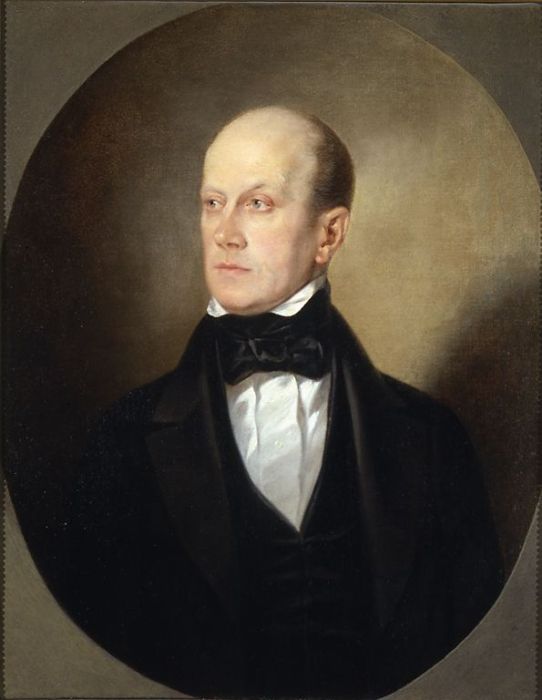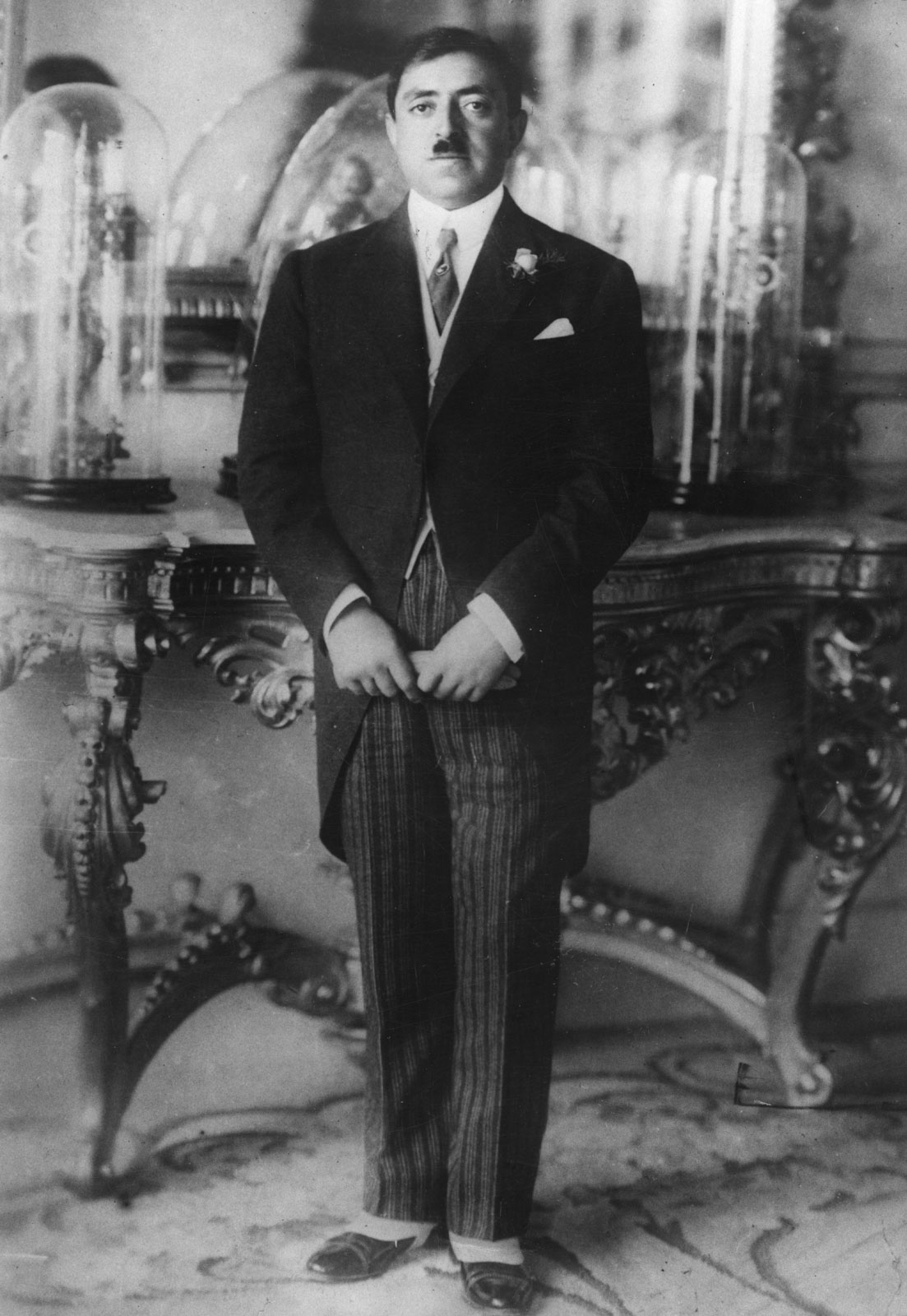|
Westernizer
Westernizers (; russian: За́падник, Západnik, p=ˈzapədnʲɪk) were a group of 19th-century intellectuals who believed that Russia's development depended upon the adoption of Western European technology and liberal government. In their view, western ideas such as industrialisation needed to be implemented throughout Russia to make it a more successful country. The Russian term was ' (, "westernism"), and its adherents were known as the ' (, "westernists"). In some contexts of Russian history, ' can be contrasted with Slavophilia, whose proponents argued that the West should adopt Russian cultural values, rather than the other way around. In modern usage, especially in the developing world, the term can refer to supporters of Western-style economic development. Leaders A forerunner of the movement was Pyotr Chaadayev (1794-1856). He exposed the cultural isolation of Russia, from the perspective of Western Europe, and his ''Philosophical Letters'' of 1831. He cast dou ... [...More Info...] [...Related Items...] OR: [Wikipedia] [Google] [Baidu] |
Vissarion Belinsky
Vissarion Grigoryevich Belinsky ( rus, Виссарион Григорьевич БелинскийIn Belinsky's day, his name was written ., Vissarión Grigórʹjevič Belínskij, vʲɪsərʲɪˈon ɡrʲɪˈɡorʲjɪvʲɪdʑ bʲɪˈlʲinskʲɪj; – ) was a Russian literary critic of Westernizing tendency. Belinsky played one of the key roles in the career of poet and publisher Nikolay Nekrasov and his popular magazine ''Sovremennik''. He was the most influential of the Westernizers, especially among the younger generation. He worked primarily as a literary critic, because that area was less heavily censored than political pamphlets. He agreed with Slavophiles that society had precedence over individualism, but he insisted the society had to allow the expression of individual ideas and rights. He strongly opposed Slavophiles on the role of Orthodoxy, which he considered a retrograde force. He emphasized reason and knowledge, and attacked autocracy and theocracy. Biography B ... [...More Info...] [...Related Items...] OR: [Wikipedia] [Google] [Baidu] |
Pyotr Chaadayev
Pyotr or Petr Yakovlevich Chaadayev (russian: Пётр Я́ковлевич Чаада́ев; also spelled Chaadaev, or Čaadajev; 7 June 7 May Old Style">Old_Style.html" ;"title="7 May Old Style">7 May Old Style1794 – 26 April [14 April O.S.] 1856) was a Russian philosopher. He was one of the Russian Schellingians. Chaadayev wrote eight "Philosophical Letters" about Russia in French between 1826 and 1831, which circulated among intellectuals in Russia in manuscript form for many years. They comprise an indictment of Russian culture for its laggard role far behind the leaders of Western civilization. He cast doubt on the greatness of the Russian past, and ridiculed Orthodoxy for failing to provide a sound spiritual basis for the Russian mind. He extolled the achievements of Europe, especially in rational and logical thought, its progressive spirit, its leadership in science, and indeed its leadership on the path to freedom. The Russian government saw his ideas as dangerous and ... [...More Info...] [...Related Items...] OR: [Wikipedia] [Google] [Baidu] |
Alexander Herzen
Alexander Ivanovich Herzen (russian: Алекса́ндр Ива́нович Ге́рцен, translit=Alexándr Ivánovich Gértsen; ) was a Russian writer and thinker known as the "father of Russian socialism" and one of the main fathers of agrarian populism (being an ideological ancestor of the Narodniki, Socialist-Revolutionaries, Trudoviks and the agrarian American Populist Party). With his writings, many composed while exiled in London, he attempted to influence the situation in Russia, contributing to a political climate that led to the emancipation of the serfs in 1861. He published the important social novel ''Who is to Blame?'' (1845–46). His autobiography, '' My Past and Thoughts'' (written 1852–1870), is often considered one of the best examples of that genre in Russian literature. Life Herzen (or Gertsen) was born out of wedlock to a rich Russian landowner, Ivan Yakovlev, and Henriette Wilhelmina Luisa Haag from Stuttgart. Yakovlev supposedly gave his son t ... [...More Info...] [...Related Items...] OR: [Wikipedia] [Google] [Baidu] |
Westernization
Westernization (or Westernisation), also Europeanisation or occidentalization (from the ''Occident''), is a process whereby Society, societies come under or adopt Western culture in areas such as Manufacturing, industry, technology, science, education, politics, economics, lifestyle (sociology), lifestyle, law, Social norm, norms, mores, Convention (norm), customs, traditions, Value (ethics), values, mentality, perceptions, diet (nutrition), diet, clothing, language, writing system, religion, and Western philosophy, philosophy. During colonialism it often involved the spread of Christianity. Westernization has been a growing influence across the world in the last few centuries, with some thinkers assuming Westernization to be the equivalent of Modernization theory, modernization, a way of thought that is often debated. The overall process of Westernization is often two-sided in that Western influences and interests themselves are joined with parts of the affected society, at minim ... [...More Info...] [...Related Items...] OR: [Wikipedia] [Google] [Baidu] |
Slavophilia
Slavophilia (russian: Славянофильство) was an intellectual movement originating from the 19th century that wanted the Russian Empire to be developed on the basis of values and institutions derived from Russia's early history. Slavophiles opposed the influences of Western Europe in Russia. Depending on the historical context, the opposite of Slavophilia could be seen as Slavophobia (a fear of Slavic culture) or also what some Russian intellectuals (such as Ivan Aksakov) called ''zapadnichestvo'' (westernism). History Slavophilia, as an intellectual movement, was developed in 19th-century Russia. In a sense, there was not one but many Slavophile movements or many branches of the same movement. Some were leftist and noted that progressive ideas such as democracy were intrinsic to the Russian experience, as proved by what they considered to be the rough democracy of medieval Novgorod. Some were rightist and pointed to the centuries-old tradition of the autocratic ts ... [...More Info...] [...Related Items...] OR: [Wikipedia] [Google] [Baidu] |
Pochvennichestvo
''Pochvennichestvo'' (; rus, Почвенничество, p=ˈpot͡ɕvʲɪnnʲɪt͡ɕɪstvə, roughly "return to the native soil", from почва "soil") was a late 19th-century movement in Russia that tied in closely with its contemporary ideology, Slavophilia. History The Slavophiles and the ''Pochvennichestvo'' supported the complete emancipation of serfdom, stressed a strong desire to return to the idealised past of Russian history, and opposed Europeanization. They also chose a complete rejection of the nihilist, classical liberal and Marxist movements of the time. Their primary focus was to change Russian society by the humbling of the self and social reform through the Russian Orthodox Church, rather than the radical implementations of the intelligentsia. The major differences between the Slavophiles and the ''Pochvennichestvo'' were that the former detested the Westernisation policies of Peter the Great, but the latter praised what were seen as the benefits of th ... [...More Info...] [...Related Items...] OR: [Wikipedia] [Google] [Baidu] |
Russia
Russia (, , ), or the Russian Federation, is a transcontinental country spanning Eastern Europe and Northern Asia. It is the largest country in the world, with its internationally recognised territory covering , and encompassing one-eighth of Earth's inhabitable landmass. Russia extends across eleven time zones and shares land boundaries with fourteen countries, more than any other country but China. It is the world's ninth-most populous country and Europe's most populous country, with a population of 146 million people. The country's capital and largest city is Moscow, the largest city entirely within Europe. Saint Petersburg is Russia's cultural centre and second-largest city. Other major urban areas include Novosibirsk, Yekaterinburg, Nizhny Novgorod, and Kazan. The East Slavs emerged as a recognisable group in Europe between the 3rd and 8th centuries CE. Kievan Rus' arose as a state in the 9th century, and in 988, it adopted Orthodox Christianity from the ... [...More Info...] [...Related Items...] OR: [Wikipedia] [Google] [Baidu] |
Proudhon
Pierre-Joseph Proudhon (, , ; 15 January 1809, Besançon – 19 January 1865, Paris) was a French socialist,Landauer, Carl; Landauer, Hilde Stein; Valkenier, Elizabeth Kridl (1979) 959 "The Three Anticapitalistic Movements". ''European Socialism: A History of Ideas and Movements from the Industrial Revolution to Hitler's Seizure of Power''. University of California Press. pp. 59, 63. "In France, post-Utopian socialism begins with Peter Joseph Proudhon. .. roudhonwas the most profound thinker among pre-Marxian socialists."Eatwell, Roger; Wright, Anthony (1999). ''Contemporary Political Ideologies'' (2nd ed.). London: Continuum. p. 82. .Newman, Michael (2005). ''Socialism: A Very Short Introduction''. Oxford University Press. p. 15. .Docherty, James C.; Lamb, Peter, eds. (2006). ''Historical Dictionary of Socialism''. Historical Dictionaries of Religions, Philosophies, and Movements. 73 (2nd ed.). Lanham, Maryland: The Scarecrow Press. p. 284. . See also Lamb, Peter (2015). ''H ... [...More Info...] [...Related Items...] OR: [Wikipedia] [Google] [Baidu] |
Cultural History Of Russia
Culture () is an umbrella term which encompasses the social behavior, institutions, and norms found in human societies, as well as the knowledge, beliefs, arts, laws, customs, capabilities, and habits of the individuals in these groups.Tylor, Edward. (1871). Primitive Culture. Vol 1. New York: J.P. Putnam's Son Culture is often originated from or attributed to a specific region or location. Humans acquire culture through the learning processes of enculturation and socialization, which is shown by the diversity of cultures across societies. A cultural norm codifies acceptable conduct in society; it serves as a guideline for behavior, dress, language, and demeanor in a situation, which serves as a template for expectations in a social group. Accepting only a monoculture in a social group can bear risks, just as a single species can wither in the face of environmental change, for lack of functional responses to the change. Thus in military culture, valor is counted a typical ... [...More Info...] [...Related Items...] OR: [Wikipedia] [Google] [Baidu] |
19th-century Philosophers From The Russian Empire
The 19th (nineteenth) century began on 1 January 1801 ( MDCCCI), and ended on 31 December 1900 ( MCM). The 19th century was the ninth century of the 2nd millennium. The 19th century was characterized by vast social upheaval. Slavery was abolished in much of Europe and the Americas. The First Industrial Revolution, though it began in the late 18th century, expanding beyond its British homeland for the first time during this century, particularly remaking the economies and societies of the Low Countries, the Rhineland, Northern Italy, and the Northeastern United States. A few decades later, the Second Industrial Revolution led to ever more massive urbanization and much higher levels of productivity, profit, and prosperity, a pattern that continued into the 20th century. The Islamic gunpowder empires fell into decline and European imperialism brought much of South Asia, Southeast Asia, and almost all of Africa under colonial rule. It was also marked by the collapse of the lar ... [...More Info...] [...Related Items...] OR: [Wikipedia] [Google] [Baidu] |
Cultural Imperialism
Cultural imperialism (sometimes referred to as cultural colonialism) comprises the cultural dimensions of imperialism. The word "imperialism" often describes practices in which a social entity engages culture (including language, traditions, rituals, political and economic structures, and ways of life) to create and maintain unequal relationships between social groups. Cultural Imperialism often uses violence as a method of implementation, and the system is often part of the legitimization process of conquest. Cultural imperialism may take various forms, such as an attitude, a formal policy, or military action - insofar as each of these reinforces cultural hegemony. Research on the topic occurs scholarly disciplines, and is especially prevalent in communication and media studies, education, foreign policy, history, international relations, linguistics, literature, post-colonialism, science, sociology, social theory, environmentalism, and sports. Background and definitions Alth ... [...More Info...] [...Related Items...] OR: [Wikipedia] [Google] [Baidu] |


_(1830s%2C_GIM).jpg)




